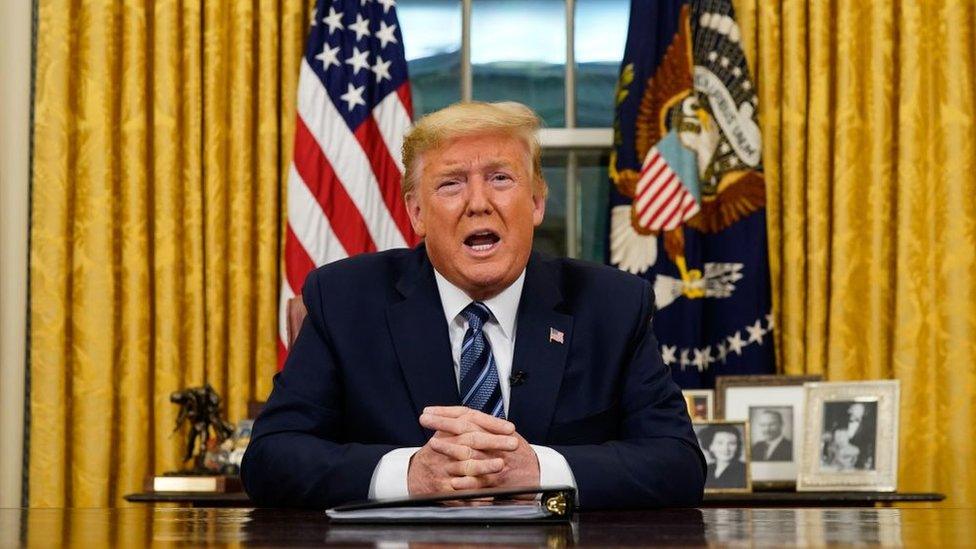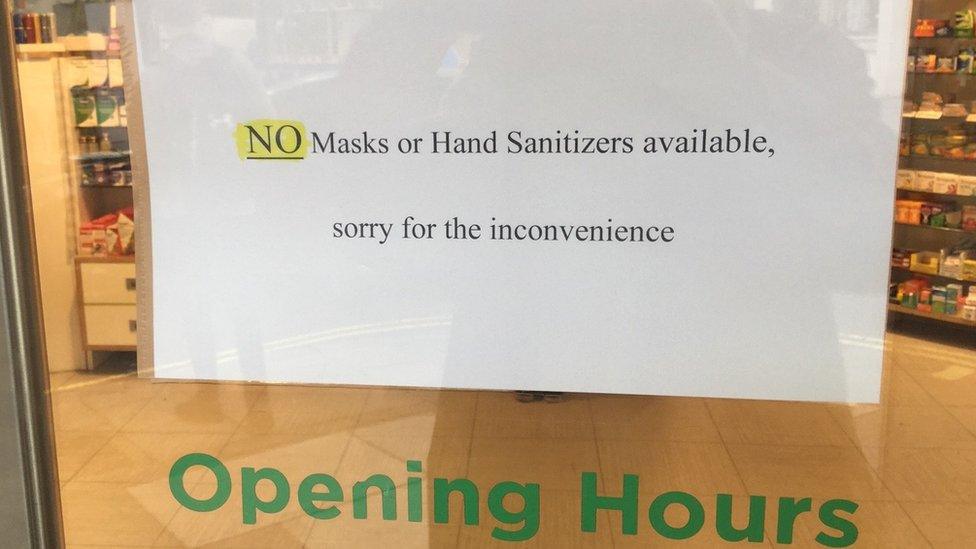Pandemic crashes global stock markets
- Published

Donald Trump said the United States would ban all travel from Europe for 30 days
It's a rout on global stock markets, not far off crash territory. That follows the travel ban speech from US President Donald Trump that triggered a pan-European sell-off.
The failure of the European Central Bank to follow the Bank of England and Federal Reserve in slashing interest rates also added to the sharp falls.
Trading on the Dow Jones was suspended by circuit breakers, designed to stop prices in free fall, for the second time this week, having not occurred before that since 1992.
The FTSE 100 has just had its worst day since Black Monday in October 1987, the third worst on record, after this Monday was the fifth worst. The main European markets closed down nearly 12%.
The reality of the economic palpitations that the restrictions on travel, trade and everyday life caused by the pandemic is being felt in stressed corporate debt markets. That's where big companies raise money that will be paid back with interest.
One veteran trader, who spotted the financial crisis coming well before everyone else, told me: "This is the standout worst week since early 2009."
European airlines in particular have been singled out as being at risk of not being able to pay this money back.
Negative spiral
A kind of "doom loop", or negative spiral, is being formed between very real supply chain disruptions and pessimistic expectations for the global economy.
The concern is that cutting interest rates can only go so far. And indeed, the eurozone showed that we are near limits for that in many places, even as they pumped finance in to the banking system.
Even the healthy tax-and-spend measures instigated, for example, at the Budget represent a sticking plaster to get through weeks, not even months of disruption.
Fiscal policy - how governments adjust their tax and spending levels - will end up having to do even more. In which case, almost all the numbers in Wednesday's Budget will prove to be wrong, especially the notion of deficits being between 2% and 3%.
Not just about the virus
But this is not just about the coronavirus. Global valuations in stock markets were already very "frothy", pumped up by low interest rates, despite sluggish growth for the global economy.

The coronavirus is leading to shortages of hygiene items
Debt levels are also higher in the corporate sector than in 2008. That, in and of itself, would have led to a reckoning eventually. The pandemic is now making this correction even more brutal.
Even having said that, some degree of stable leadership in the global response to this global problem might have instilled confidence.
Last night, President Trump provided the opposite of that, seeming to mix together his response to a grave health problem with his long-standing trade problems with the European Union.
Of course, economics is not the main problem right now. It should not be. But the markets are pointing to a wider problematic reality.
- Published11 March 2020
- Published10 March 2020
